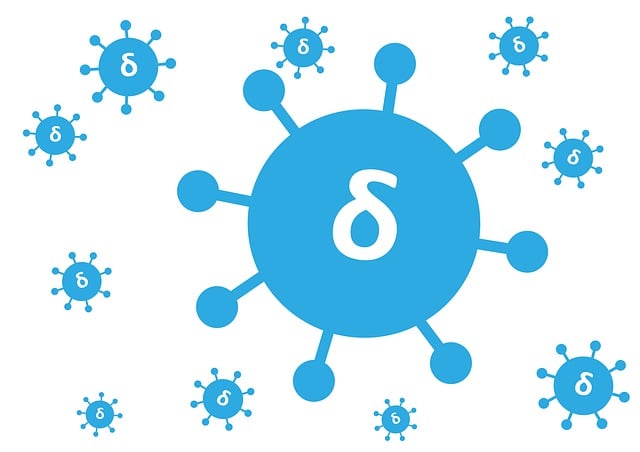Delta-9 THC vs CBD: Unlocking Your Ideal Wellness Solution

Delta-9 tetrahydrocannabinol (THC) is the psychoactive compound in cannabis that creates a 'high', while cannabidiol (CBD) offers non-psychoactive therapeutic benefits. Delta-9 THC enhances mood but may increase anxiety, whereas CBD provides relaxation and pain management without a high. When choosing between them, consider personal preferences, desired effects (energy vs. relaxation), sleep quality, health conditions, tolerance, and effect intensity to make an informed decision regarding delta 9 or CBD use.
Delta-9 THC and CBD are two prominent compounds in cannabis, each offering distinct experiences. Understanding their differences is crucial for making an informed choice that aligns with your wellness goals. Delta-9 THC, the active ingredient responsible for cannabis’s psychoactive effects, can enhance mood and relaxation but may not be suitable for everyone due to its potential impact on cognitive functions. In contrast, CBD is non-psychoactive, offering pain relief and calming effects without altering consciousness. This guide will help you navigate between delta-9 and CBD, ensuring you find the right fit for your needs.
- Understanding Delta-9 THC: The Active Ingredient in Cannabis
- CBD (Cannabidiol): A Non-Psychoactive Alternative
- Comparing Effects: Delta-9 vs CBD for Mood, Pain, and Relaxation
- Choosing the Right Option: Factors to Consider for Personal Preferences and Wellness Goals
Understanding Delta-9 THC: The Active Ingredient in Cannabis

Delta-9 tetrahydrocannabinol (THC) is the primary psychoactive compound found in cannabis, responsible for the plant’s characteristic high. Often referred to simply as delta-9 or THC, it interacts with our bodies’ endocannabinoid system, which plays a crucial role in regulating mood, memory, and pain perception. When consumed, delta-9 binds to cannabinoid receptors in the brain, triggering a cascade of effects that can include heightened senses, altered time perception, increased appetite, and relaxation.
Understanding the nature of delta-9 THC is essential when navigating the cannabis landscape. Its potency and effects vary depending on factors like strain, method of consumption (e.g., smoking, edibles), and individual tolerance or sensitivity. This knowledge empowers users to make informed decisions about their cannabis use, ensuring a safe and enjoyable experience tailored to their preferences and needs.
CBD (Cannabidiol): A Non-Psychoactive Alternative

CBD (Cannabidiol) has gained significant attention as a popular alternative to Delta-9 THC, offering users a non-psychoactive experience. Unlike Delta-9, CBD does not produce a ‘high’ or alter consciousness, making it an appealing choice for those seeking relaxation and pain relief without the mind-altering effects. This compound interacts with the body’s endocannabinoid system, which plays a crucial role in regulating mood, appetite, and pain perception, leading to potential therapeutic benefits.
For individuals concerned about the psychological impacts of Delta-9 or those seeking a more subtle and natural approach to wellness, CBD presents an intriguing option. Its legal status and growing availability have made it easier for people to explore its potential benefits, from reducing anxiety and improving sleep to alleviating chronic pain and inflammation without the risks associated with psychoactive substances.
Comparing Effects: Delta-9 vs CBD for Mood, Pain, and Relaxation

When comparing Delta-9 and CBD, understanding their distinct effects on mood, pain, and relaxation is key to choosing the right option for your needs. Delta-9 THC, the primary psychoactive compound in cannabis, is known for its ability to induce euphoria and alter perception. It can significantly improve mood, providing a sense of happiness and well-being. However, its potent effects may not be suitable for everyone, especially those with anxiety or a history of mental health issues, as it can sometimes amplify stress and cause paranoia.
On the other hand, CBD (Cannabidiol) is non-psychoactive and doesn’t produce the same mind-altering high as Delta-9. Instead, it offers subtle yet potent therapeutic benefits. CBD has been found to effectively manage chronic pain by interacting with the endocannabinoid system. It can also promote relaxation without drowsiness, making it a popular choice for those seeking stress relief and better sleep. Its non-intoxicating nature makes it a safer option for individuals concerned about cognitive impairment or potential legal issues associated with Delta-9 consumption.
Choosing the Right Option: Factors to Consider for Personal Preferences and Wellness Goals

When deciding between Delta-9 and CBD, it’s crucial to consider your personal preferences and wellness goals. Both compounds offer unique benefits, but they interact with your body differently. Delta-9, known for its psychoactive properties, provides a euphoric experience but may not be suitable for everyone, especially those seeking to avoid mental alterations. On the other hand, CBD is non-intoxicating and is often preferred for its potential therapeutic effects, such as stress relief, anxiety management, and pain reduction.
Several factors can guide your choice. If you’re looking for a more energizing and uplifting effect to enhance productivity or creativity, Delta-9 might be the better option. However, if you prioritize relaxation, sleep quality, or managing specific health conditions without altering consciousness, CBD could be more aligned with your needs. Personal tolerance, desired intensity of effects, and any specific health considerations should all play a role in determining which compound is right for you.
When it comes to choosing between Delta-9 THC and CBD, understanding their distinct effects is key. While Delta-9 offers a more intense high with potential mood elevation and pain relief, it may not be suitable for everyone due to its psychoactive properties. On the other hand, CBD provides a calm and relaxed state without the mental alteration, making it an excellent choice for those seeking anxiety reduction and pain management. Ultimately, the right option depends on your personal preferences and wellness goals, with both Delta-9 and CBD presenting unique benefits in their own right.










